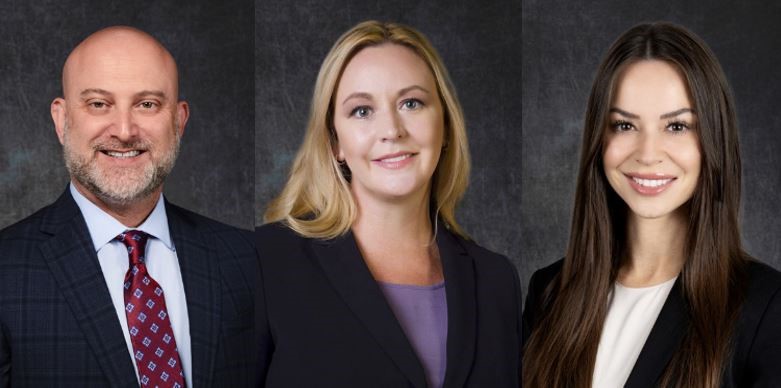
REQUIREMENTS OF THE CORPORATE TRANSPARENCY ACT
By:
Steven R. Braten, Shareholder
Paula S. Marra, Shareholder
Stephanie C. Galloway, Associate

What is the Corporate Transparency Act?
The Corporate Transparency Act, also known as the Beneficial Ownership Information (BOI) Reporting Rule, requires every new and existing business entities, including community associations, to report and disclose certain information to the Department of Treasury Financial Crimes Enforcement Network (FinCEN) relevant to the “beneficial owners” of the corporation.A person who willfully violates the BOI reporting requirements may be subject to civil penalties of up to $500 for each day that the violation continues. That person may also be subject to criminal penalties of up to two years imprisonment and a fine of up to $10,000. Potential violations include willfully failing to file a beneficial ownership information report, willfully filing false beneficial ownership information, or willfully failing to correct or update previously reported beneficial ownership information.
Initial Report: Any domestic reporting company created before January 1, 2024, must file an initial report not later than January 1, 2025. The following information must be provided in the initial report:
(i) For the reporting company:
- The full legal name of the reporting company;
- Any trade name or “doing business as” name of the reporting company;
- A complete current address of the reporting company’s principal place of business.
- The State, Tribal, or foreign jurisdiction of formation of the reporting company;
- For a foreign reporting company, the State or Tribal jurisdiction where such company first registers; and
- IRS Taxpayer Identification Number (TIN) (including an Employer Identification Number (EIN)) of the reporting company, or where a foreign reporting company has not been issued a TIN, a tax identification number issued by a foreign jurisdiction and the name of such jurisdiction;
(ii) For every individual who is a beneficial owner of such reporting company:
- The full legal name of the individual;
- The date of birth of the individual;
- A complete current address consisting of the individual’s residential street address;
- A copy of one of the following documents:
- A non-expired passport issued to the individual by the United States government;
- A non-expired identification document issued to the individual by a State, local government, or Indian tribe for the purpose of identifying the individual;
- A non-expired driver’s license issued to the individual by a State; or
- A non-expired passport issued by a foreign government to the individual, if the individual does not possess any of the documents described above.
Who is a beneficial owner of a reporting company?
A beneficial owner is an individual who either directly or indirectly: (1) exercises substantial control over the reporting company, or (2) owns or controls at least 25% of the reporting company’s ownership interests. This likely means that each person on the Board of Directors qualifies as a beneficial owner and must report the above-referenced information. In addition, if one or more owners own 25% or more of the units within the association, or at least 25% of the common elements, then based on the second prong of the disclosure requirements, those owners should also be disclosed as beneficial owners. We recognize, however, such owners may refuse to supply the information required to be reported pursuant to the BOI Rule. In such event, the association should attempt to comply by requesting the information from the owner or owners in question and seek the assistance of the association’s legal counsel, if necessary.
Are some companies exempt from the reporting requirement?
Yes, 23 types of entities are exempt from the beneficial ownership information reporting requirements. These entities include publicly traded companies meeting specified requirements, many nonprofits, and certain large operating companies. Notably, community associations are not exempt entities.

Are Condominium Associations and/or Homeowners Associations considered tax-exempt entities?
No. Community associations do not fall within any of the above-referenced exemptions. Notably, community associations are not tax-exempt entities under the Act.

What if previously reported information changes?
Updated Report: If there is any change to the required information about your company or its beneficial owners in a beneficial ownership information report that your company filed, your company must file an updated report no later than 30 days after the date of the change.
How will I report my company’s beneficial ownership information?
If you are required to report your company’s beneficial ownership information to FinCEN, you will do so electronically through a secure filing system available via FinCEN’s BOI E-Filing website https://boiefiling.fincen.gov/
Is a reporting company required to use an attorney or a certified public accountant (CPA) to submit beneficial ownership information to FinCEN?
No. FinCEN expects that many, if not most, reporting companies will be able to submit their beneficial ownership information to FinCEN on their own using the guidance FinCEN has issued. Reporting companies that need help meeting their reporting obligations can consult with professional service providers such as lawyers or accountants.

